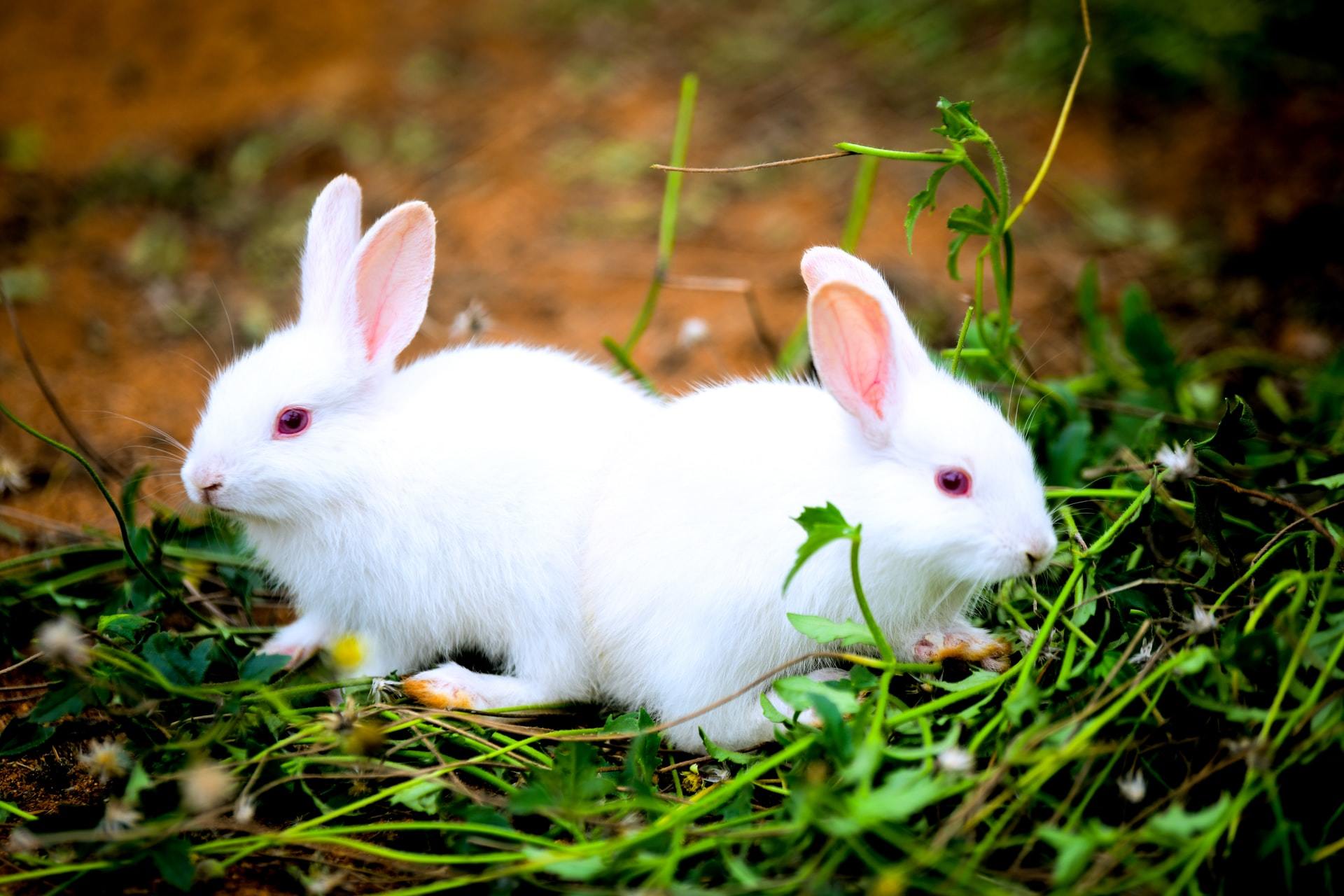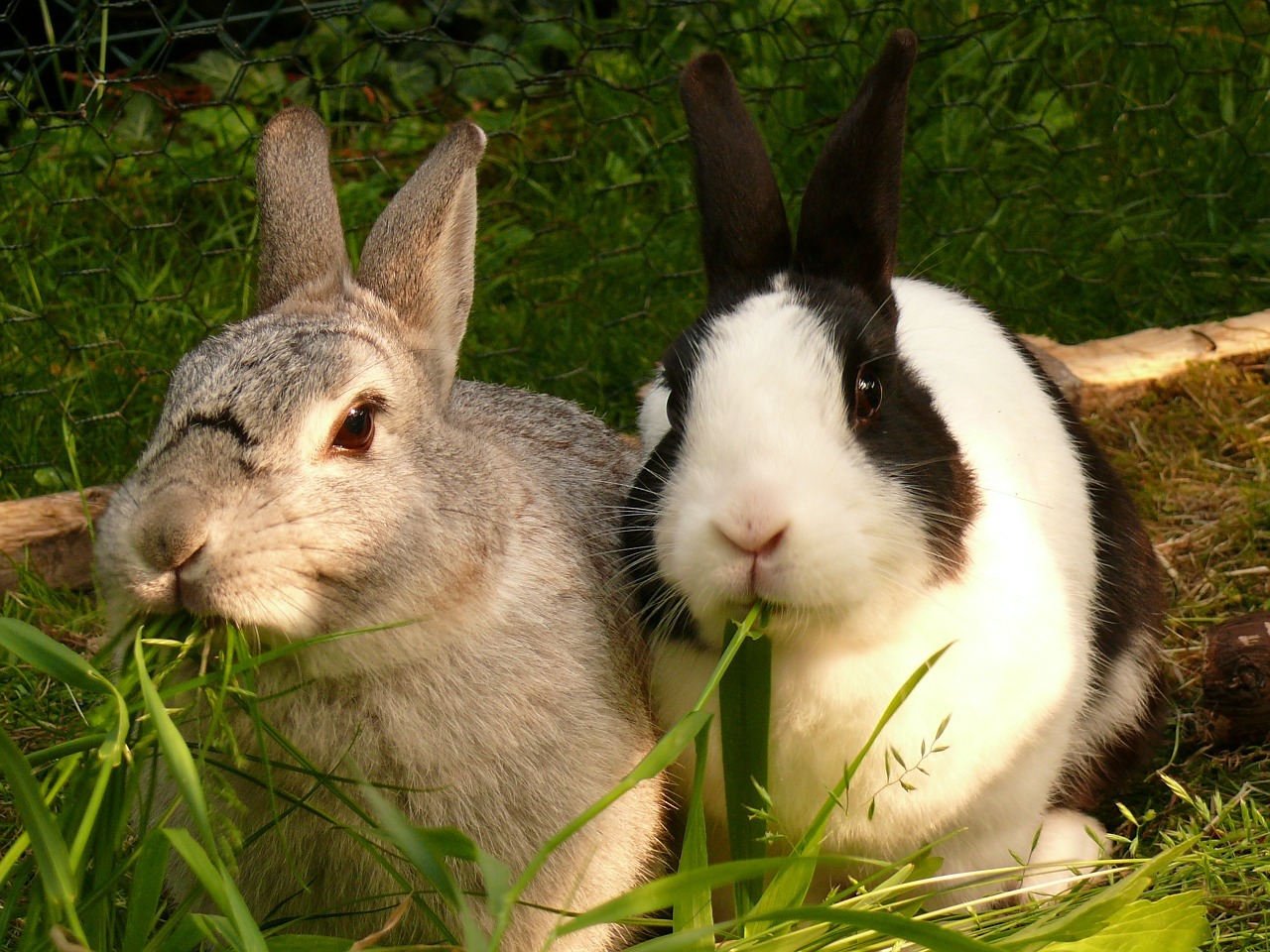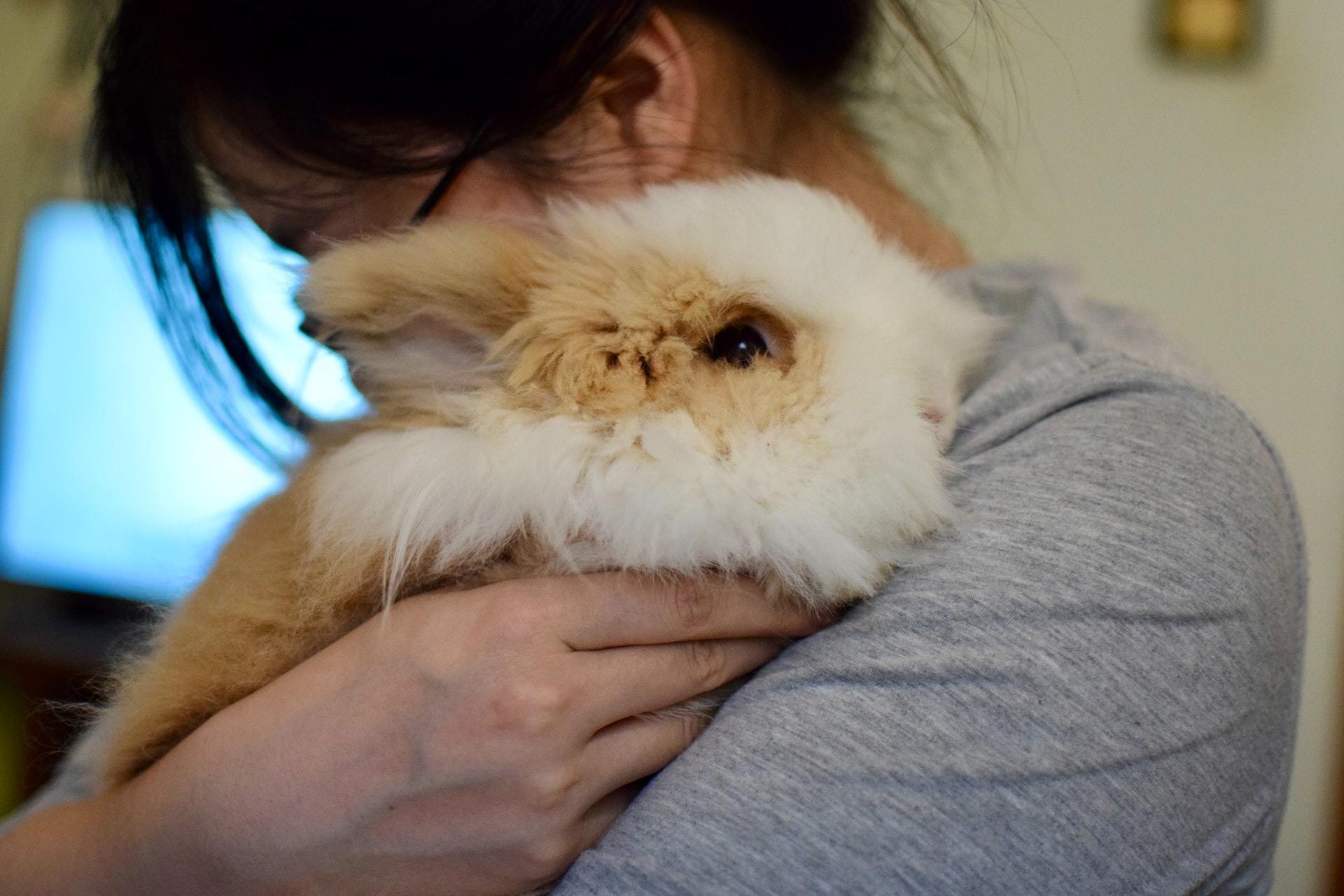Common Rabbit Diseases and Symptoms

If you have a pet rabbit or are considering adopting one, it’s important to know how to care for them and prevent common types of illness and disease. This article will help you understand common rabbit diseases, symptoms, and treatment options so you can keep your beloved bunny healthy and safe!
Are you concerned about your pet?
Book a video consultation with an experienced veterinarian within minutes.
- Professional vet advice online
- Low-cost video vet consultations
- Open 24 hours a day, 365 days a year
Dental Disease in Rabbits
Rabbits have continually growing teeth, termed elodont, that have no true roots. The crowns of the teeth are very long and extend below the gum line, termed hypsodont. Rabbits’ teeth grow an average of 2 millimeters per week! This means having the proper diet to help wear down the new growth is very important in preventing dental disease.
Common symptoms of tooth problems in rabbits include reduced appetite, dropping food, drooling or excess moisture under the chin, weight loss, pawing or rubbing the mouth, and poor grooming.
Other than an improper diet, other causes of dental disease in rabbits include malocclusion (born with abnormal jaw position), trauma (attack by another animal, running into a wall, biting down on something too hard, etc.), and metabolic bone disease (abnormal calcium and phosphorus levels in the body leading to bone weakness and dental disease).
Rabbits can also develop tooth root abscesses and bone destruction of the jaw as a result of dental disease.
If you are concerned your rabbit may have dental disease, be sure to bring him to your local exotic veterinarian for a complete physical exam, sedation to fully evaluate the teeth, and radiographs (x-rays) to assess the teeth and roots. Then a plan can be made to help correct the issue such as filing the teeth down, extractions, etc.
For more information, be sure to read our article on Rabbit Dentition and Oral Health!

Ringworm in Rabbits
Ringworm is a fungal infection that can also infect people and other mammals. It is spread via direct contact with the infected animal or items they have been in contact with, such as bedding, fur, brushes, and toys. Young animals or those that are stressed or immunosuppressed are more likely to become infected.
Symptoms can be nonexistent, or the rabbit can have hair loss, scaling, and crusted lesions on the fur that are often not very itchy. These symptoms are similar to lesions caused by mites. Lesions often develop around the eyes, ears, and nose. The lesions can spread to any area of the body and appear similar to lesions caused by mites.
Treatment typically consists of medicated dips, shampoos, or other topical treatments. Oral antifungals are often started and given for at least 4 weeks or longer.
Decontaminating the environment is key to limiting the spread and reinfection risks.
Rabbit Syphilis
Rabbits can get an infection called rabbit syphilis, also known as Vent Disease. It is not contagious to people. Treptonema is the infective agent, and it is transmitted by direct contact with infected skin or during birth.
Symptoms include hair loss and crusty skin with possible ulcers around the eyes, lips, nostrils, nose, vulva, prepuce, and around the rectal area.
Your vet can look for the actual organism under the microscope or run a blood test to confirm the diagnosis.
Treatment often consists of injections of an antibiotic under the skin or into the muscle once a week for 3 weeks or once a day for a week, depending on the medication used.

Rabbit Skin Parasites
Rabbits can get ear mites, lice (not very common), fur mites, fleas, ticks, and maggot infestation from flies.
Ear mites typically set up an infestation in the ears but can spread to the skin on the face, head, and other parts of the body in severe cases. These cause thick, dried, crusted material to form and if picked away, the skin often bleeds and ulcers as the mites burrow into the skin. Topical treatments are available from your vet and pain medications may also be needed. Cleaning the environment well will help reduce the risk of reinfection.
Cheyletiella is a fur mite of rabbits that can also infect people, dogs, and cats. It causes dry, scaling lesions that may be itchy. You may also be able to see the mites moving if you look closely! Your vet can confirm these mites with a skin scraping or tape test. Treatment options include topical medications, injections of antiparasitic medication, and medicated dips.
Fleas and ticks can also feed on rabbits. Having your rabbit on a safe flea preventative from your vet is ideal to help reduce a flea issue. Some flea products are fatal to rabbits, so be sure you have a safe option to use from your vet! Ticks are more of a problem in outdoor rabbits. Many tick products are also fatal for rabbits. Your vet can give an injection of an antiparasitic medication if needed and help you remove the ticks manually. Ticks can transmit diseases to rabbits and people.
Rabbit Diarrhea
Rabbits can develop diarrhea as a result of parasites, viral infections, bacterial imbalances, inappropriate diets, stress, antibiotic administration, and even genetic predisposition. Young rabbits are often at the highest risk for severe illness or death, but diarrhea can be very bad or even fatal for adult rabbits, depending on the underlying cause.
If your rabbit has runny stools and you just gave them a lot of fresh greens, try eliminating the greens for at least 24 hours and just offer hay to see if the diarrhea resolves on its own. If the diarrhea persists for over 24 hours, your rabbit should see their local vet immediately for an exam, parasite screening, bacterial check, and begin supportive care and treatments.
Common parasitic causes of diarrhea in rabbits include coccidia, giardia, and cryptosporidium. Common bacterial causes include clostridium, E.coli, Lawsonia, Salmonella, and Pseudomonas.

Gastrointestinal Stasis
GI stasis is the opposite of diarrhea. The GI tract stops moving entirely or dramatically slows down its normal movements. This is caused by a poor diet, foreign material like fur stuck in the GI tract, stress, pain, lack of exercise, or other underlying cause such as dental disease. Rabbits on a low hay diet that eat mainly pellets are at a higher risk for developing this potentially deadly condition.
Rabbits with GI stasis often have a low to no appetite, low to no fecal production, reduced water intake, abdominal pain, and lack of activity/movements. Rabbits may also grind their teeth, dig or scratch, or sit with a hunched posture.
Treatment often includes pain medications, rehydration with fluids often given IV, assisted/syringe feedings, medications to help the GI tract move, and possibly antibiotics. Treatment is often needed for 3-7 days. Surgery may be necessary if there is foreign material in the GI tract like a mat of fur.
Viral Diseases
1. Rabbit Hemorrhagic Disease Virus
This virus is present in many countries and was identified in the US in 2018. Rabbit Hemorrhagic Disease has spread to wild and pet rabbits. The virus can spread by direct contact, eating feces of an infected rabbits, by insects, and by contact with contaminated bowls/bedding/objects. RHDV can survive after a rabbit has died and continue to spread to other rabbits that come into contact with the body or fur.
Once exposed, rabbits typically become ill within 12 to 72 hours. Symptoms can persist for 7 to 14 days. RHDV can be fatal to rabbits. The most common symptoms of rabbit hemorrhagic disease include acute death with no prior symptoms, lethargy, anorexia, fever often over 104F, discharge from the eyes and/or nose, blue discoloration to the tongue or gums, abnormal breathing, yellow discoloration to the skin and eyes, and neurologic symptoms such as ataxia, tremors, seizures, depression, inability to use the rear limbs normally, and flexing the neck and head upward.
There is no specific treatment for RHDV, and it can be fatal. Luckily, RHDV type 2 now has a vaccine that has emergency authorization to be used in the US. As of October 2021, it has been begun to be distributed in 32 states!
2. Myxomatosis Virus
This is a poxvirus that is 99% fatal in rabbits and is most commonly seen on the West Coast.
Myxomatosis can be spread by insects, direct contact with an infected rabbit, or by contact with bedding/objects an infected rabbit has had access to.
Clinical symptoms typically develop within 14 days of exposure and can include discharge from the eyes and/or nose, droopy ears, lethargy, reduced appetite, weight loss, abnormal breathing/struggling to breathe, fever often over 103F, purple spots on the skin, lumps or bumps on the skin, seizures, coma, redness to the eyes and eyelids, swollen eyelids, nose, lips, face, ears, rectum, and genitals, and even death before symptoms develop.
Unfortunately, there is no cure, and treatments are often ineffective. Euthanasia is often the kindest option.
Read more:
Your Rabbit’s Guide to Safe and Dangerous Plants to Eat
Need to speak with a veterinarian regarding your rabbit’s health or another condition?
Click here to schedule a video consult to speak to one of our vets. You can also download the FirstVet app from the Apple App Store and Google Play Stores.
More articles about Rabbit
Are you concerned about your pet?
Book a video consultation with an experienced veterinarian within minutes.